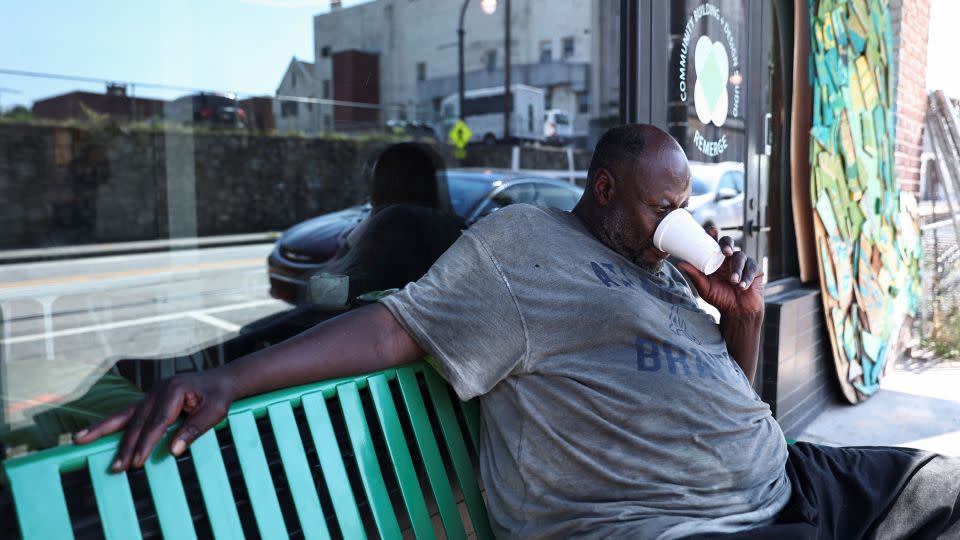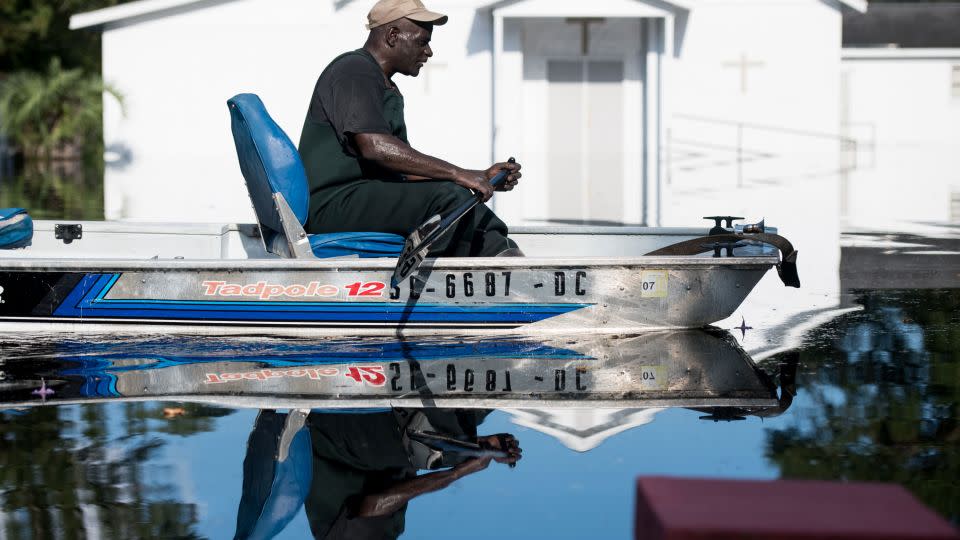Black communities in Southeastern states are more likely to be exposed to extreme weather events than overall population
Black Americans living in Southeastern states are more likely to be impacted by extreme heat, hurricanes and flooding than the overall population, according to a new analysis released Thursday by the consulting firm McKinsey & Company.
Researchers compared the location of some Black communities with analyses showing climate hazards, like wildfires, extreme heat, hurricanes and flooding. They examined 11 US southeastern states as well as the Baltimore and New Orleans metropolitan areas. Those cities were chosen based “on their diverse populations, history of redlining and segregation, and geographic locations with a susceptibility to flooding,” the report said.
Black communities in the Southeastern states are 1.4 times more likely to be exposed to extreme heat than the overall population, the report said.
They are also 1.8 times more likely than the overall US population to experience hurricanes – that’s because there’s an elevated risk of hurricanes in the Gulf and Atlantic coast, where the Black population is more concentrated, according to the analysis.

By 2050, nearly 17% of Black-owned homes could be at risk of storm damage from hurricanes or tropical storms in those states, compared to 9.7% of all residential property, the analysis found.
The report also found Black communities in the Southeast were at 9.9% risk of storm damage in 2020 while all residential property had a 5.6% risk of storm damage.
When it comes to coastal and river flooding in the greater Southeast, Black residents are 1.6 times more likely than the US population in the same area to experience a 1-in-100-year flooding event, the report says.
Property damage from hurricanes could threaten the ability of Black Americans to transfer generational wealth and climate change could exacerbate preexisting economic inequities, the authors wrote in their analysis.
The authors also said climate change could be an opportunity to address inequities.
“Climate change may create significant physical risks for Black populations in the United States, but it could create opportunities to address existing racial gaps, too,” the authors wrote.

They suggest the public and private sectors can consider increasing education around the impacts of climate change on communities, engaging leaders in the Black community when states plan for “climate adaptation and transition to a lower carbon economy,” and ensure Black entrepreneurs have equitable access to finance and opportunities to be part of innovation hubs supporting a transition to a green economy.
An estimated nearly 47 million people living in the US identify as Black or African American, according to the US Census.
For more CNN news and newsletters create an account at CNN.com

